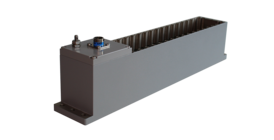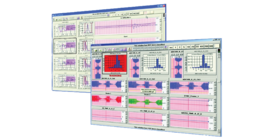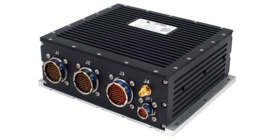- Overview
- Specifications
- Downloads
- Featured Products
- Request a Quote
- Product Support
The MIRG-120B-1 module provides IRIG-B time code capability to the MEDAU-2000 Miniature E-Bus Data Acquisition Unit or the MCDAU-2000 Miniature CAIS Bus Data Acquisition Unit or the MWDAU-2000 Miniature Wide-Band Data Acquisition Unit. The module can be placed in either a master or remote unit and will provide time code capability for the modules within that particular stack. The module accepts an external IRIG-B, AC or DC time source for frame time tagging purposes, and in addition, provides perword or per-message time tagging capability for certain I/O modules in the stack that acquire bus data (e.g. 1553, ARINC-429, RS-232, etc.).
The MIRG-120B-1 module also provides an IRIG-B DC time code output for cascading purposes. All encoded time words furnished by the MIRG-120B-1 module comply with IRIG-106-96, Chapter 4 requirements for “high time”, “low time” and “micro time” formats. The module has a built-in microprocessor and ADC to measure and encode the internal MEDAU-2000 system temperature and internal voltage rails within the host MEDAU-2000 Encoder.
Features
- Time code reader/generator module
- IRIG-B format (others available as an option)
- Accepts modulated (AC) or unmodulated (DC) inputs
- Generates IRIG-B DC output
- Use for frame time tagging, bus word time tagging
- Generates status words for transmission in PCM
- Compatible with MEDAU/MCDAU/MWDAU-2000 wide-band stack operation up to 20 Mbit/sec
- “Flywheel” mode (runs on internal oscillator)
- Mission “Elapsed Time” mode (external reset)
- External battery backup provisions
- Time compatible with IRIG-106-96
Applications
- Flight test instrumentation
- Wideband testing, structural analysis
- Physical research and experimentation





